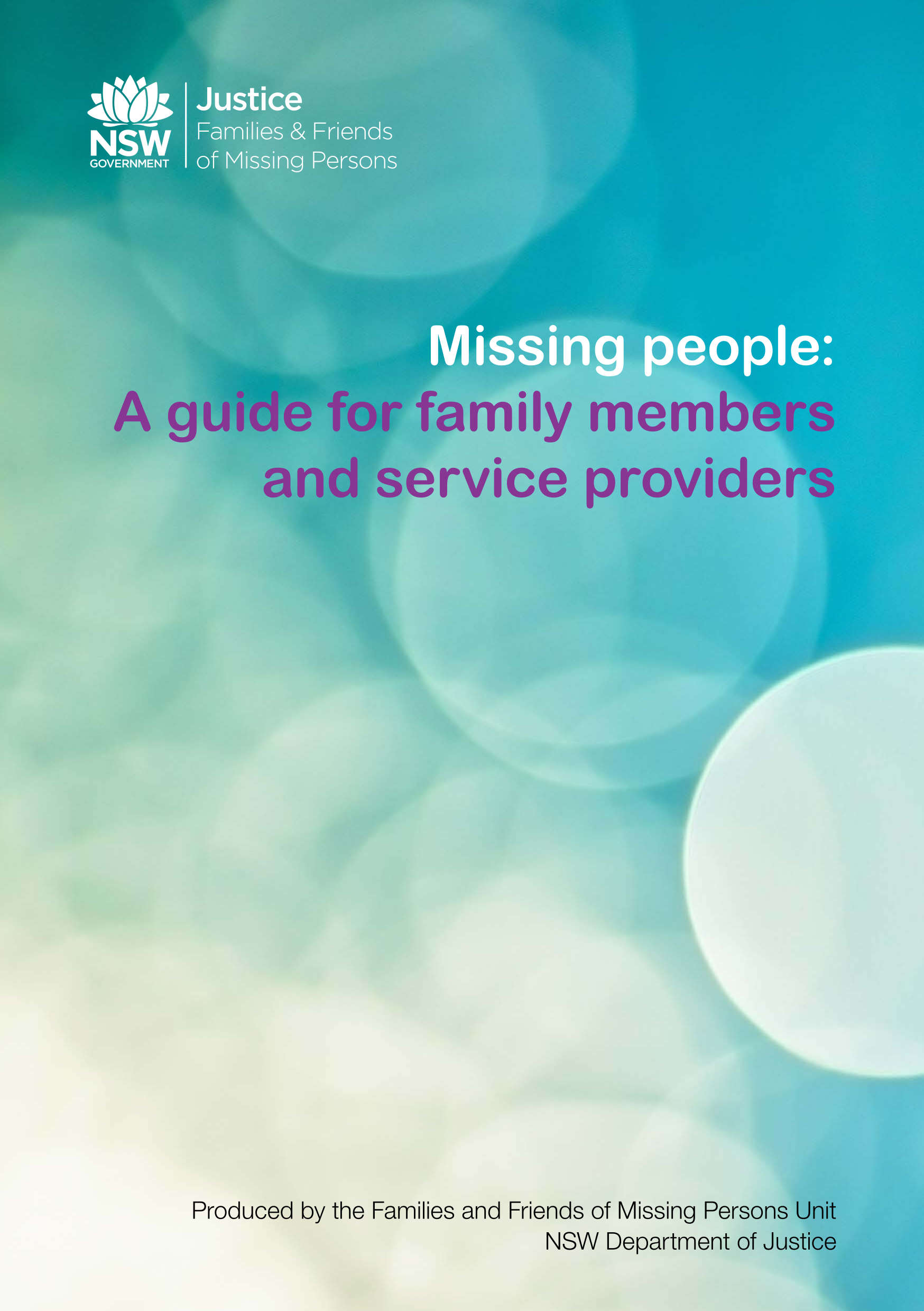This fact sheet was created by the Families and Friends of Missing Persons (FFMPU) in New South Wales, Australia. The FFMPU is a unique service that provides information, referral and support service for families and friends of the missing. The FFMPU has granted permission to CCIMA to reproduce and post this work.
Having a loved one disappear is a harrowing time for the family and friends left behind. Uncertainty about the health and whereabouts of someone you love can cause enormous challenges on you as an individual as well as on your significant relationships.
Even if you are not an immediate family member of a missing person this does not mean that your feelings of loss and anxiety are not as valid as those directly affected.
This fact sheet aims to suggest ways in which you can look after yourself and ways in which you can support the immediate people involved such as the partners, siblings, children and parents of missing persons.
Ways you can acknowledge the loss
You might be the grandparent, aunt, uncle, cousin, flatmate or work colleague of a missing person. Their disappearance has probably had an immobilizing effect on your life but you may find it difficult to acknowledge the loss, as you are not the closest relation to the missing person.
Your sadness and loss is valid, regardless of your relationship with the missing person.
Some ways to help you manage the loss might include writing a journal, seeking support from a counsellor or close friends, you might even want to gather some people together and celebrate the missing person.
Talking about the anxiety and confusion of unresolved loss may create opportunities for you to manage your emotions and get through each day.
Supporting the immediate family members of missing persons
Families of missing persons have spoken about the weight of carrying other people’s pain when their loved one has gone missing.
Whilst it is important to acknowledge your own concerns please ensure that you are not further burdening families of missing with your own pain. It may be more appropriate to speak to a neutral party about your own reaction to the person going missing.
It is also important to recognize that if the immediate family members of the missing person are relying on you for support, that you monitor how you are managing and perhaps share the load with other friends or extended family members.
Many families of missing persons speak about their guilt, anger and confusion in not being able to predict that the missing person was going to disappear. Acting as a quasi-detective is not always conducive to the emotional needs of families, being a support person requires you to be non-judgmental and to be comfortable sitting with the ambiguous loss that accompanies each missing persons case.
Further information
For further information, please visit www.missingpersons.justice.nsw.gov.au.


